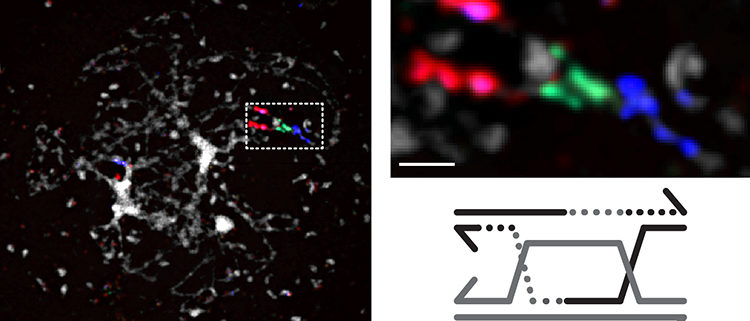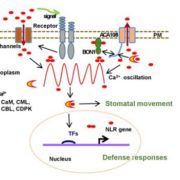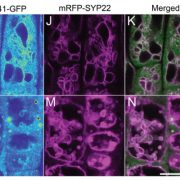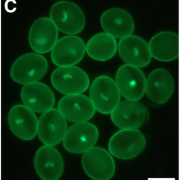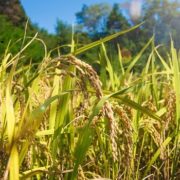Meiotic Crossover Formation
Kurzbauer et al. discover a role for the Fanconi anemia D2 plant homogue in promoting meiotic crossover formation. https://doi.org/10.1105/tpc.17.00745
by Marie-Therese Kurzbauer and Peter Schlögelhofer
Background: Meiosis is a specialized cell division and generates the basis for genetic diversity through sexual reproduction. Precursors of plant generative cells divide meiotically to form macro- and microspores containing half of the initial genomic content that is subsequently reconstituted by fertilization. The chromosomes of generative cells contain a mosaic of paternal and maternal genetic information due to meiotic recombination – a process requiring the formation and repair of DNA breaks that allow homologous chromosomes to become physically connected via so-called crossovers (COs). Several proteins are involved in CO formation and processing and one of them, AtFANCD2, was found and characterized in our study. The gene is named after Fanconi anemia (FA), a severe genetic disorder in humans (similarly observed in mice) characterized by early-onset cancer and reduced fertility due to DNA repair defects.
Question: FA disease is caused by mutations in any of the nineteen conserved FA genes. Their functional analysis in animals is hindered by the detrimental effects when mutated. We set out to characterize the molecular role of FANCD2 in Arabidopsis, since plants are in general less sensitive to mutations that impair DNA repair pathways.
Findings: We analyzed Arabidopsis fancd2 mutant plants and found that they develop normally but form less seeds, suggesting a role of AtFANCD2 in sexual reproduction. The decreased fertility is caused by a reduction in COs, demonstrated by direct microscopic observation of meiotic chromosomes and recombination studies. COs may be generated by different pathways that require separate sets of proteins. The “CO I” pathway, responsible for most COs in mammals and plants, is well-characterized and many involved proteins are known. For the “CO II” pathway only one factor had been identified. Our study revealed that FANCD2 is involved in the CO II pathway and acts independently of previously identified CO proteins.
Next Steps: Although we defined the role of FANCD2 in plant meiosis, it is still unknown how it actually promotes CO formation. We propose that FANCD2, together with associated proteins, processes a specific range of CO intermediates that otherwise cannot be resolved. Future experiments will be designed to test this idea.
Kurzbauer et al. (2017). Arabidopsis thaliana FANCD2 Promotes Meiotic Crossover Formation. Plant Cell https://doi.org/10.1105/tpc.17.00745


